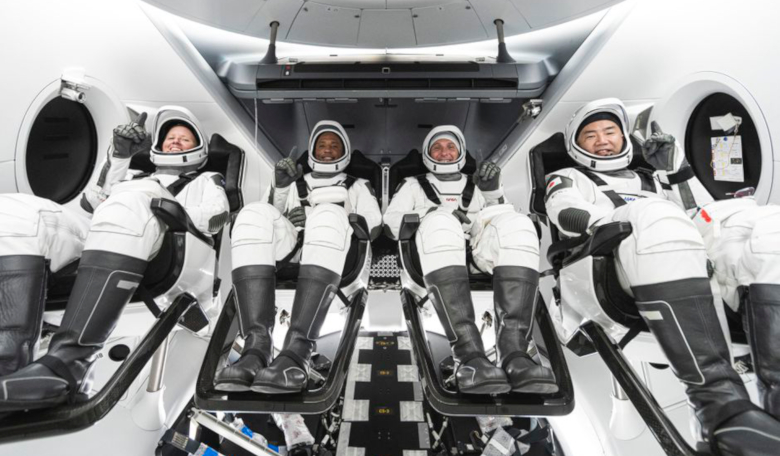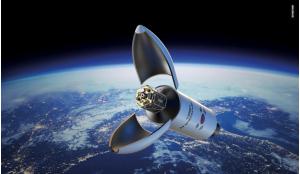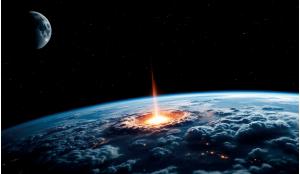The SpaceX Crew Dragon Resilience successfully docked to the International Space Station at 11:01 pm EST Monday, transporting NASA astronauts Michael Hopkins, Victor Glover, Shannon Walker, and Japan Aerospace Exploration Agency (JAXA) astronaut Soichi Noguchi.
When the hatches open about 1:10 am EST Tuesday, 17 Nov, the Crew-1 astronauts will join Expedition 64 Flight Engineer Kate Rubins of NASA, and station Commander Sergey Ryzhikov and Flight Engineer Sergey Kud-Sverchkov of Roscosmos, who arrived to the station 14 Oct.
NASA TV will continue to provide live coverage through the welcoming ceremony with NASA’s Associate Administrator for Human Exploration and Operations Kathy Lueders joining to greet the crew from the Mission Control Center at NASA’s Johnson Space Center in Houston, and JAXA President Hiroshi Yamakawa joining from the Tsukuba Space Center in Japan. The welcome ceremony is targeted to begin about 1:40 am.
Crew-1 is the first of six crewed missions that NASA and SpaceX will operate together as part of the agency's Commercial Crew Programme, a route that NASA foresees as a way to reduce the cost of going to space.
As such the launch is seen as the beginning of a new era in space travel; it also ends the reliance on the US using Russian rockets to get their astronauts into low Earth orbit - an arrangement that has been in place since NASA's Space Shuttle programme ended in 2011.











